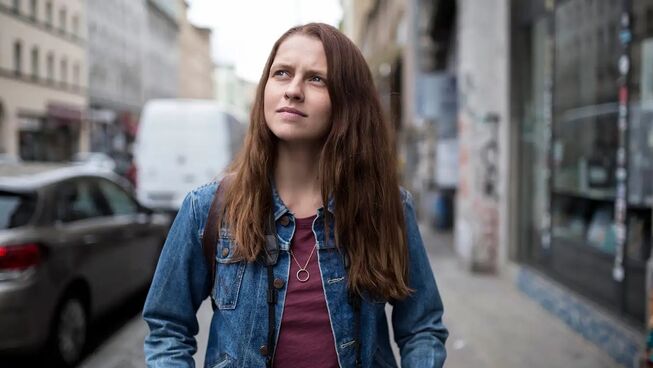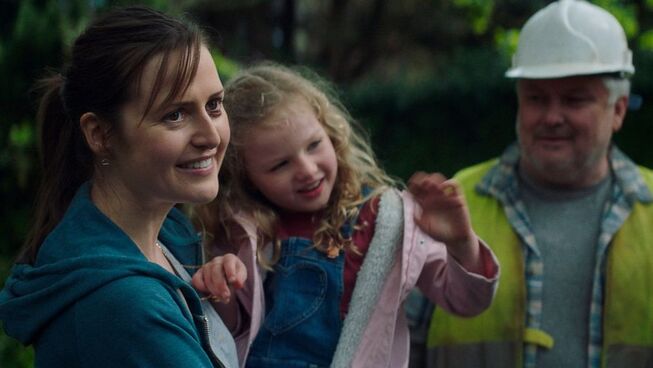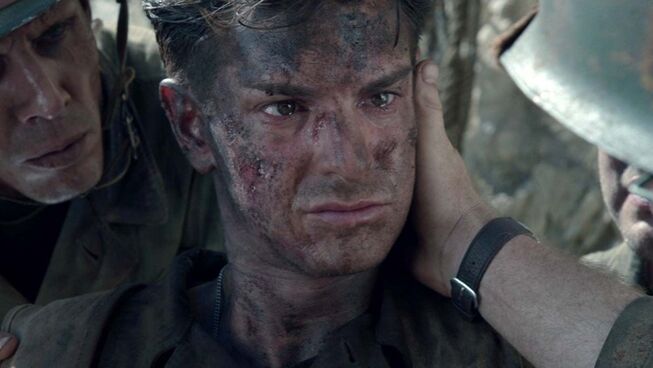
2 out of 5 stars
Backpacking across Germany has been a dream come true for Clare (Teresa Palmer). Exploring historic Berlin is exceptionally divergent from her hometown of Brisbane, Queensland. There is an excitement in viewing the culture, the architecture and the fellow travellers, but amongst the experiences she finds herself getting lonely. One day as she photographs life on the streets, she literally bumps into Andi (Max Riemelt) and falls under his spell. As an English teacher from a local high school, he catches onto her accent and finds a commonality that allows him to connect with the young backpacker. Their instant attraction moves from the German streets to a passionate tryst in his secluded flat. The following morning, he heads out for work and accidentally locks her into the apartment, Clare must wait until he comes home before she can leave to wander the city again. Then after another passionate night together, the scenario repeats itself. This is when the reality sets in that Andi has no intention of allowing her to leave again.
As a father of three daughters, I find it difficult to be entertained by the abduction and subsequent torture of a young woman. Regardless of the quality of the direction and acting performances, this is a hard experience to enjoy. Director Cate Shortland (Lore) provides a unique perspective of this horrific scenario, but even with her talented feminine touch, nothing can soften the blow of this brutish content.
Coming off of her winsome turn as Dorothy Doss in Hacksaw Ridge, Teresa Palmer could not have found two more disparate roles. The depth of character and amount of screen time she is given does allow the Australian actress to deliver one of her most significant performances to date. Her emotional range is the driving force behind the power of this film. As her character moves from the original naivety that gets her into this tenuous situation to the desperation to live at all costs, Palmer proves that she can carry the lead for future projects. Her on-screen work is countered with an effective performance by Max Riemelt. His quiet and brooding manner works well within this Australian/German production. His ability to communicate a love and disdain for his victim gives the needed tension to make this bizarre situation disturbingly believable.
Even with these excellent performances at the heart of the film, the writing causes the script to come undone. As the Clare character is written, it makes it difficult to believe that she would allow herself to fall victim to Andi. It seems improbable that she would not see the warning signals as they enter an abandoned apartment building. The second act does maintain the necessary tension to hold the audience through to the conclusion. Then the concluding scenes move into a contrived and unsatisfying realm. Admittedly, some of the difficulties may come from crossing of the cultural divide between European and Australian cinema, but it most likely seems to be a rushed production to deliver the ending. Despite its shortcomings and the hopelessness of the story, Berlin Syndrome does provide hope for the future of the Australian talents in Palmer and Shortland.
REEL DIALOGUE: How id kidnapping a crime against humanity?
You shall love your neighbour as yourself. - Matthew 22:39
Kidnapping is considered one of the most egregious sins against society. It has been an unfortunate part of the human experience throughout history. The realities of the Berlin Syndrome are played out on Facebook feeds or on the latest daily newscast. In the Old Testament of the Bible, it was a crime that would have been punishable by death, ranked in association with murder. In the words of Jesus, this topic is addressed broadly by his second commandment, Love your neighbour as yourself. It would be hard to find anyone who would not see that kidnapping is an abomination, but there is another question to consider. Why are we being entertained by this act against humanity?
Other passages that address kidnapping: Exodus 21:16, Deuteronomy 24:7, 1 Timothy 1:9-10






